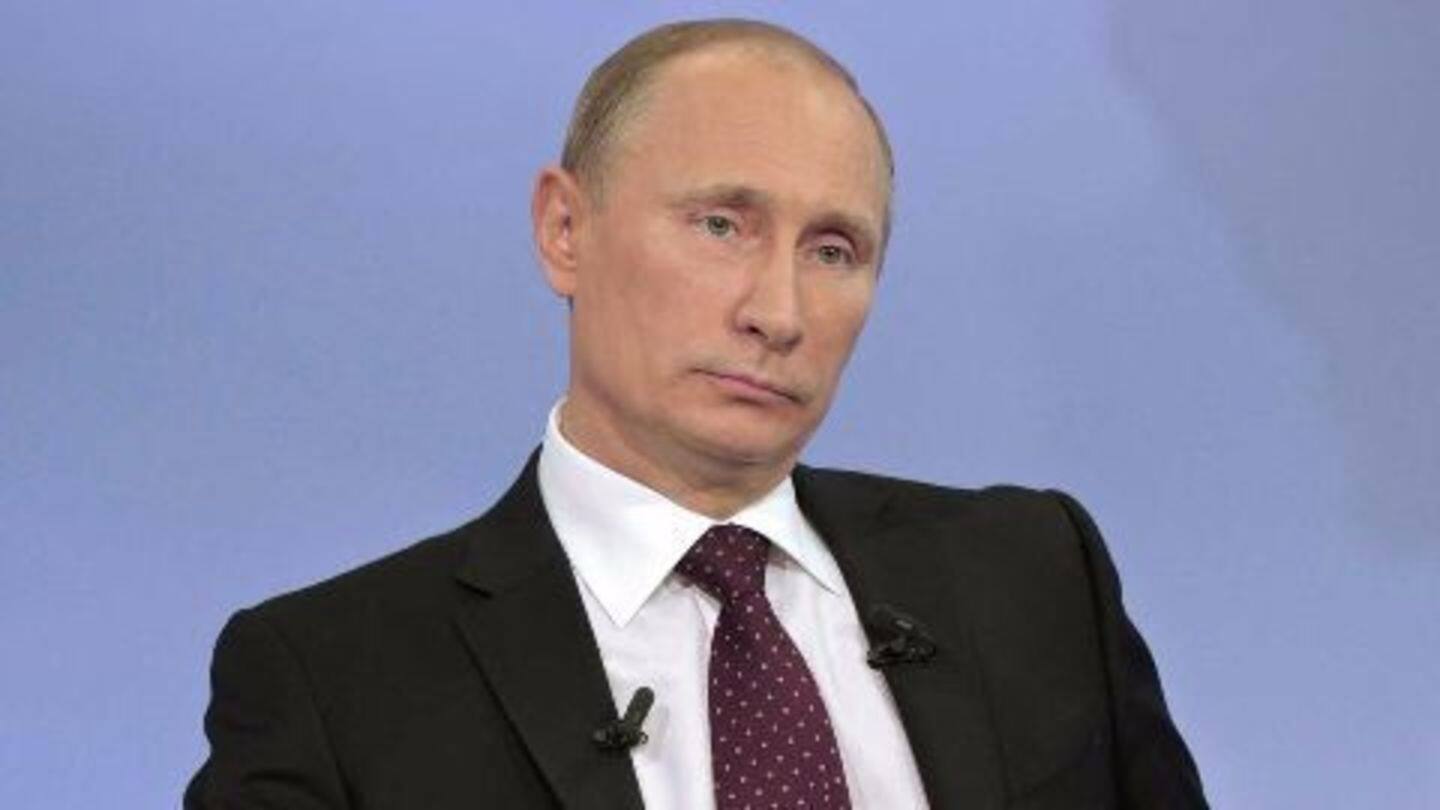
New Russian law overrules ECHR verdicts
What's the story
President Vladimir Putin signed a new law that would have Russian Constitutional Court verdicts, overrule those issued by the European Court of Human Rights. Human Rights Organizations claim that the decision will be an impediment to victims of human rights abuses seeking justice. The ECHR said it had received 218 complaints against Russia in 2014 of which 122 were clear violations of Human Rights.
Background
The Council of Europe
The Council of Europe is a regional organization that brings together 47 European member countries and consists of diplomatic, parliamentary and judicial institutions, most notably the ECHR. Russia joined the Council in February 1996. All members have to abide by common laws and regulations against corruption, human rights and money laundering among others, so as to achieve better integration of Europe.
Hounded?
Unfairly targeted by CoE: Russia
Since joining the Council of Europe, Russia has repeatedly alleged that the Council unfairly singles out Russia in the European Court of Human Rights. In 2006, Sergei Lavrov stated that many decisions of the CoE toward Russia had a political subtext. Russia has been known to be compliant with ECHR rulings and has paid over 11 million Euros in damages to victims so far.
May 2011
ECHR overturns Russian Constitutional Court Verdict
The ECHR ruled in favour of a radio-operator from the Russian military, who held the government responsible for violating his human rights by not giving him paternity leave. Under Russian law, only women are granted maternity leave in the army. Hearing his case, the Russian Constitutional Court ruled that males were not entitled to such leave, which prompted the victim to approach the ECHR.
10 Apr 2014
CoE bans Russian delegation's voting rights
The Council of Europe banned the voting rights of the 18 member Russian delegation who had come to attend the Council's Parliamentary Assembly. The Council stated that the decision was made after a vote by all members over Russia's actions in Crimea. In retaliation, Russia threatened to quit the Council of Europe entirely. The ban will last until the end of 2014.
31 Jul 2014
ECHR awards 1.9 billion Euros to Yukos
The ECHR ordered Russia to pay the shareholders of Yukos, a defunct oil company owned by Mikhail Khordovsky, which was broken up and nationalized under Russian law. The court found that Russia had failed to "strike a fair balance" in its treatment of Yukos and infringed upon Mikhail Khordovsky's individual rights. Russia's Justice Ministry termed the ECHR ruling as biased and unfair.
15 Aug 2014
Putin threatens to quit ECHR
Russian President Vladimir Putin threatened to quit the ECHR saying Moscow may theoretically withdraw from its jurisdiction. Putin accused the European Court of Human Rights of politicizing many judgments and having unfairly biased viewpoints on cases pertaining to Russia. Tensions between Russia and the ECHR were high after the court ordered Moscow to pay 1.9 billion Euros in damages to shareholders of Yukos Oil.
Information
How many Russian cases go to the ECHR?
The ECHR states that the highest number of its cases come from Russia. As of 2014, there were 20,000 petitions with the ECHR that involved allegations of human rights violations in Russia.
14 Jul 2015
Russian court overrules ECHR
The Russian Constitutional Court in a judgment stated that Russia's Constitution trumps the rulings of the European Court of Human Rights (ECHR). The court order came in light of increasing discontent among Russian law makers over interference from the ECHR. The order is still not a law, as the Russian Parliament has to ratify it in order for it to become enforceable.